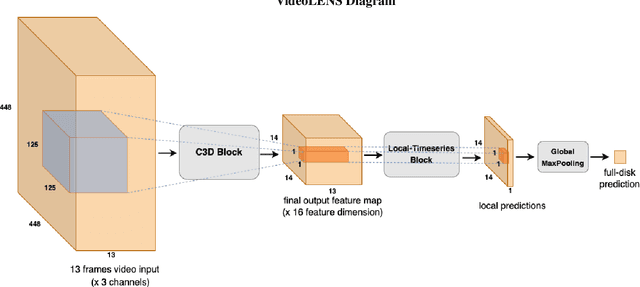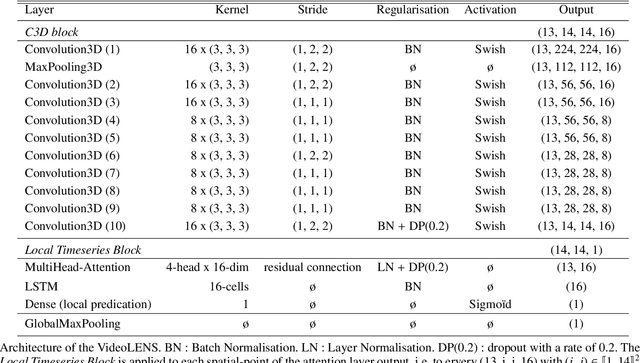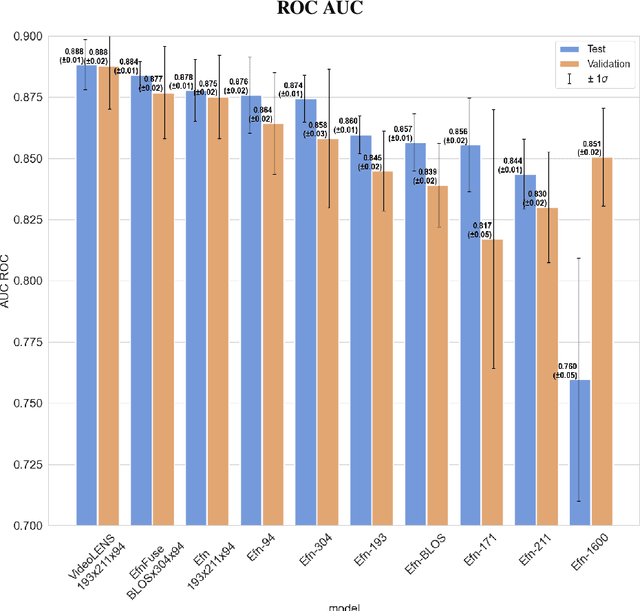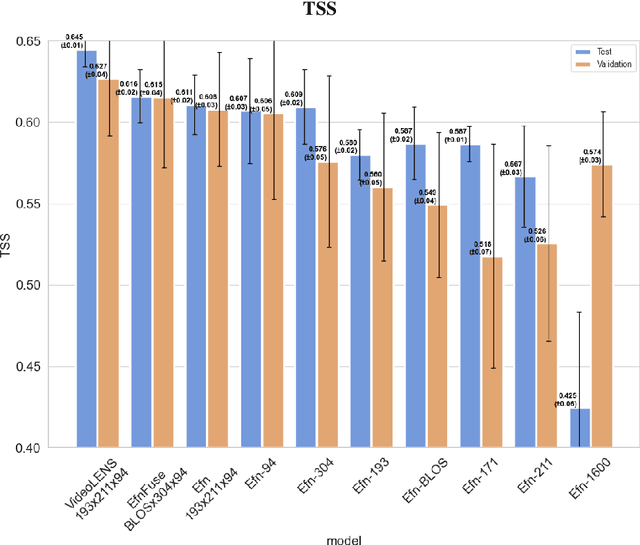Multimodal Flare Forecasting with Deep Learning
Paper and Code
Oct 21, 2024



Solar flare forecasting mainly relies on photospheric magnetograms and associated physical features to predict forthcoming flares. However, it is believed that flare initiation mechanisms often originate in the chromosphere and the lower corona. In this study, we employ deep learning as a purely data-driven approach to compare the predictive capabilities of chromospheric and coronal UV and EUV emissions across different wavelengths with those of photospheric line-of-sight magnetograms. Our findings indicate that individual EUV wavelengths can provide discriminatory power comparable or better to that of line-of-sight magnetograms. Moreover, we identify simple multimodal neural network architectures that consistently outperform single-input models, showing complementarity between the flare precursors that can be extracted from the distinct layers of the solar atmosphere. To mitigate potential biases from known misattributions in Active Region flare catalogs, our models are trained and evaluated using full-disk images and a comprehensive flare event catalog at the full-disk level. We introduce a deep-learning architecture suited for extracting temporal features from full-disk videos.
 Add to Chrome
Add to Chrome Add to Firefox
Add to Firefox Add to Edge
Add to Edge